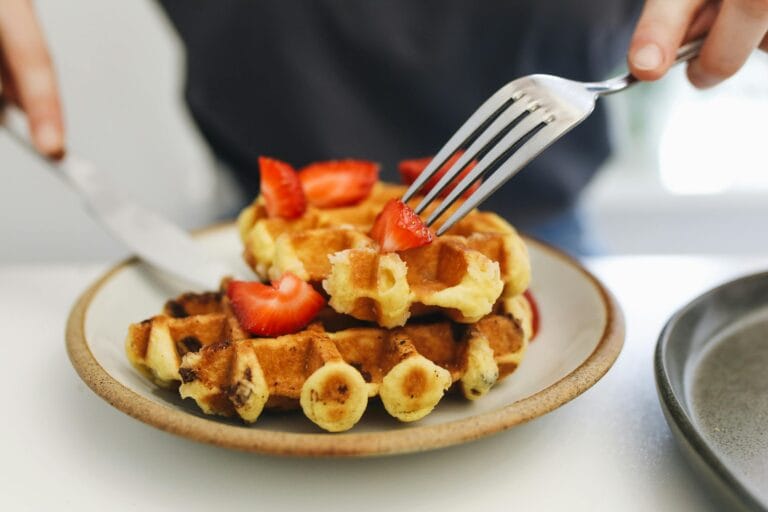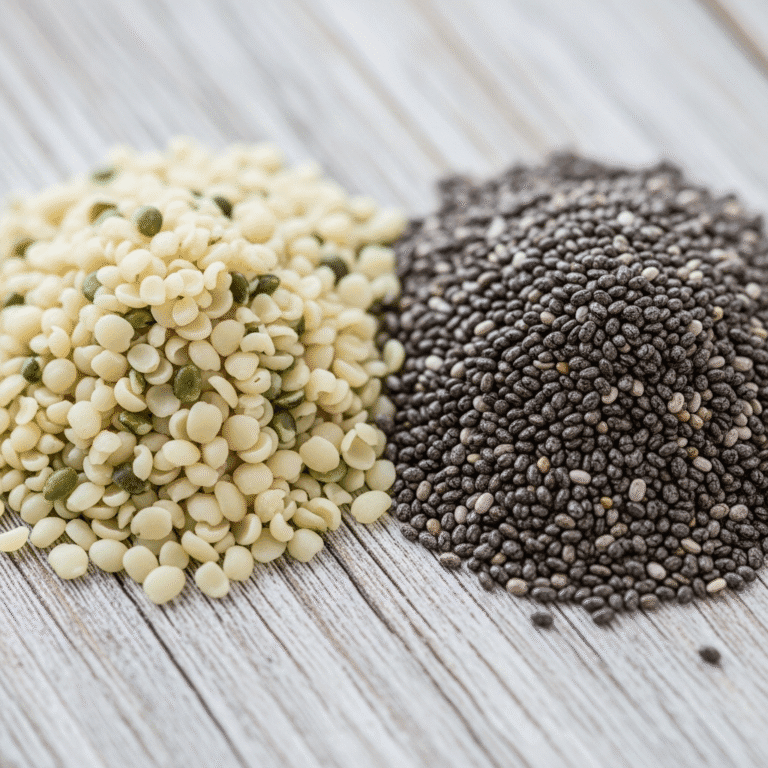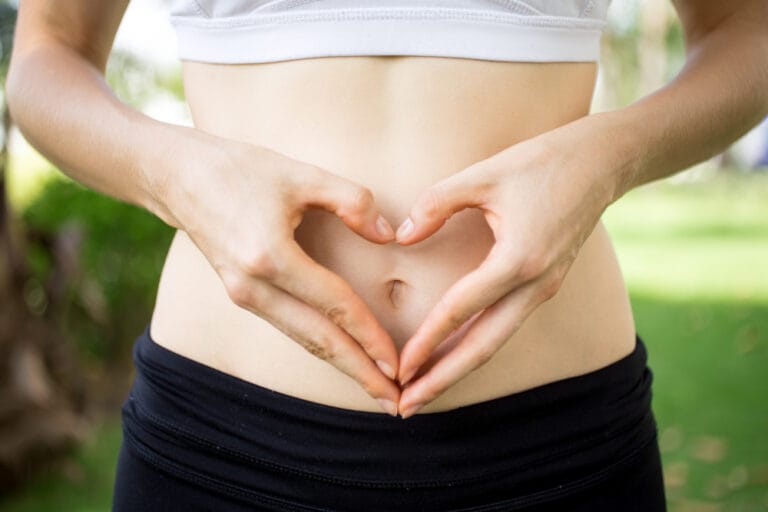FREE SHIPPING OVER $50
Gastroenterologists Warn: These 15 ‘Healthy’ Foods Are Wrecking Your Gut

You are doing everything right. You start your day with a smoothie packed with spinach and fruit, you snack on what you think are nutritious protein bars, and you fill your plate with plenty of vegetables at dinner. You are eating what you are told is healthy, yet you still feel bloated, gassy, or low on energy. Your stomach is in knots, and you have no idea why.
The answer might be hiding in plain sight. A growing number of gastroenterologists and gut health experts are now revealing a surprising truth: many of the foods we have been conditioned to believe are good for us are secretly causing chaos in our gut. This article will expose the 15 most common culprits and reveal why they can wreak havoc on your digestive system, even if they seem completely innocent.
The Gut Health Problem: Why We Get It Wrong
To understand why these seemingly healthy foods are causing you grief, you must first understand the powerhouse that is your gut. Your gut is not just a place where digestion happens; it is a complex ecosystem home to trillions of microorganisms, collectively known as the gut microbiome. This microbiome plays a crucial role in everything from breaking down food and absorbing nutrients to influencing your immune system and even your mood.
When you eat something your gut does not agree with, you can disrupt the delicate balance of this ecosystem. This disruption, known as dysbiosis, can lead to an overgrowth of harmful bacteria, causing inflammation, gas, and bloating. Many “healthy” foods contain specific compounds, like certain carbohydrates or artificial additives, that are not properly digested and can ferment in your large intestine, creating the very symptoms you are trying to avoid.
15 “Healthy” Foods Secretly Wrecking Your Gut
Here is the comprehensive list of foods that gastroenterologists are now warning could be the secret source of your gut issues.
1. Flavored Yogurt
Yogurt is praised for its probiotics, but many flavored varieties are loaded with added sugar and artificial sweeteners. Excess sugar can feed harmful bacteria in the gut, leading to inflammation and dysbiosis.
- What to Eat Instead: Choose plain, unsweetened yogurt with live, active cultures. Add your own natural sweetness with a few fresh berries or a drizzle of maple syrup.
2. Protein Bars
Often marketed as a convenient health food, many protein bars contain sugar alcohols (like sorbitol, maltitol, and xylitol) and high-fructose corn syrup. These ingredients are poorly absorbed by the gut and can ferment, causing gas, bloating, and even a laxative effect.
- What to Eat Instead: Opt for a handful of raw nuts and seeds or a hard-boiled egg for a quick protein boost.
3. Whole Wheat Bread
For years, we have been told that whole wheat is the ultimate healthy choice. However, for many people, the gluten and high fiber content can be difficult to digest. This can lead to bloating, inflammation, and a host of other gut-related issues, especially for those with gluten sensitivities.
- What to Eat Instead: Consider a switch to naturally gluten-free grains like quinoa, buckwheat, or brown rice.
4. Apples
While apples are rich in fiber and nutrients, they are also high in fructose, a type of sugar that can be difficult to absorb for some people, especially those with irritable bowel syndrome (IBS).
- What to Eat Instead: Berries, bananas, or citrus fruits, which are lower in fructose, are often easier on the gut.
5. Chewing Gum
Sugar-free chewing gum is often seen as a healthy way to curb cravings. However, the artificial sweeteners and sugar alcohols found in many gums can be a nightmare for your gut. Chewing also causes you to swallow excess air, which can lead to bloating.
- What to Eat Instead: Consider sipping on a hot herbal tea, like ginger or peppermint, to curb cravings and soothe your digestive system.
6. Broccoli and Cauliflower
These cruciferous vegetables are packed with vitamins and minerals, but they also contain a type of complex carbohydrate that is hard to break down. When this compound ferments in the large intestine, it can create a significant amount of gas and bloating.
- What to Eat Instead: Switch to lower-FODMAP vegetables like carrots, spinach, or zucchini, which are just as nutritious but easier to digest.
7. Lentils and Beans
Legumes are a fantastic source of protein and fiber, but they also contain oligosaccharides, a type of carbohydrate that can cause gas and bloating in many people.
- What to Eat Instead: Tofu, tempeh, or edamame can be good alternatives that offer similar protein benefits without the gut distress. You can also try thoroughly rinsing canned beans to reduce some of the problematic compounds.
8. Packaged Salad Dressings
Many diet or “light” salad dressings are filled with hidden sugars, high-fructose corn syrup, and artificial additives that can disrupt your gut microbiome.
- What to Eat Instead: Make your own simple dressing with olive oil, lemon juice, salt, and pepper.
9. Dried Fruit
Dried fruit is a source of concentrated sugar, which can cause blood sugar spikes and feed problematic bacteria in the gut.
- What to Eat Instead: Stick to a small handful of fresh fruit, which contains more water and less concentrated sugar.
10. Garlic and Onions
These alliums contain fructans, a type of carbohydrate that can cause bloating and discomfort in people who are sensitive to them.
- What to Eat Instead: Spices like ginger, cumin, or a small amount of asafoetida powder can add flavor without the gut-irritating effects.
11. Carbonated Beverages
Even if they are sugar-free, carbonated beverages introduce a significant amount of air into your digestive system. This can lead to a feeling of fullness, gas, and a visibly bloated stomach.
- What to Eat Instead: Switch to plain still water, herbal tea, or naturally flavored water with a slice of lemon or cucumber.
12. “Healthy” Snack Crackers
Many crackers are made with refined grains, added sugars, and inflammatory vegetable oils that can all contribute to gut inflammation and dysbiosis.
- What to Eat Instead: Choose crackers made from simple ingredients like almond flour or rice flour, or opt for simple snacks like sliced cucumbers with hummus.
13. Agave Nectar
Marketed as a healthy alternative to sugar, agave nectar is very high in fructose, which, as we have seen, can be a major gut irritant for many.
- What to Eat Instead: Stick to small amounts of natural sweeteners like maple syrup, or better yet, sweeten food with fruit.
14. Skim Milk
For many people, the issue with dairy is not just the fat but also the lactose. Lactose intolerance is common, and it can cause severe gas and bloating.
- What to Eat Instead: Consider a lactose-free alternative like oat, almond, or coconut milk, which can be much easier on your gut.
15. Certain Legumes (Chickpeas and Kidney Beans)
While lentils are on the list, chickpeas and kidney beans, in particular, can be problematic due to their high fiber and oligosaccharide content. The gut bacteria struggle to break these down, leading to gas.
- What to Eat Instead: Small amounts of thoroughly cooked white rice or potatoes can provide a source of energy that is easy to digest for most people.
The Gut-Friendly Lifestyle
While avoiding these foods is a great first step, a truly healthy gut requires a holistic approach.
1. Master the Power of Prebiotics and Probiotics
Prebiotics are a type of fiber that acts as food for your good gut bacteria, helping them thrive. Probiotics are the beneficial bacteria themselves. To get the benefits of both, incorporate prebiotic foods like oats, bananas, and asparagus into your diet and probiotic foods like kefir, sauerkraut, and kimchi.
2. Manage Your Stress
The gut-brain axis is a powerful two-way street. When you are stressed, your gut knows it, and this can lead to inflammation and digestive issues. Find a way to manage your stress, whether it is through meditation, yoga, or a daily walk.
3. Hydration is Key
Water is a fundamental component of proper digestion. It helps break down food and keeps waste moving smoothly through your system. Drink plenty of water throughout the day to support gut health.
4. Chew Your Food
This may sound simple, but chewing your food thoroughly is the first and most crucial step in digestion. The more you chew, the less work your stomach and intestines have to do.
Conclusion
The journey to a healthy gut is not a one-size-fits-all approach. While gastroenterologists are providing invaluable warnings, your body is the ultimate authority. Pay close attention to how you feel after eating certain foods. Keep a food diary if necessary to identify your personal triggers.
The path to feeling better does not have to be confusing. By understanding the science behind your gut and focusing on a simple, whole-foods diet, you can finally achieve the comfort and energy you have been searching for.
Related Articles
- Stop Mixing Chia Seeds With These 5 Foods—It Could Be Sabotaging Your Health Goals
- New Study Links These 5 Gut Issues to Alzheimer’s—What You Eat Could Be Hurting Your Brain
- Feeling Off Lately? This Hidden Gut Issue Might Be the Real Reason
- Think Drinking More Water Is Always Healthy? It Could Be Wrecking Your Digestion
- Bloated After Eating? These 5 Yoga Poses Work Like Magic for Digestion







